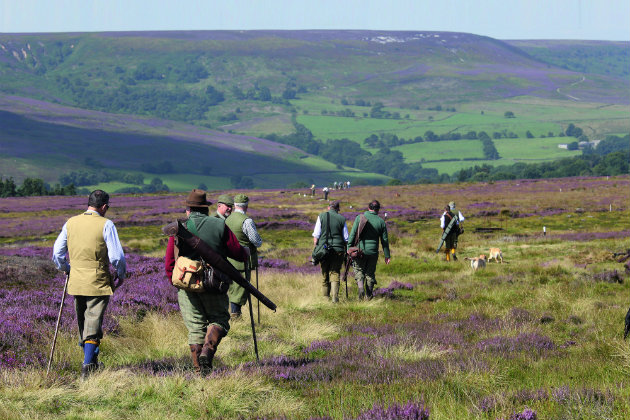Climate change – shoots use nature-based solutions to tackle problem
Shoots across the country have been leading the way in using nature-based solutions to tackle climate change.

Restoring petland has been identified by the International Union for the Conservation of Nature as one of the key tools to sequester Carbon and it is an opportunity shooting estates have eagerly taken up. The Sphagnum mosses which make up peat lock up carbon dioxide much more quickly and for much longer than trees, so producing the wet environment in which they can thrive is vital. Earlier this year, the Moorland Association reported that its members who manage upland estates in England had successfully restored more than 3000 hectares of degraded peat.
In the North Pennines, nine privately owned moorland estates have worked together to restore nearly 1000 hectares. As well as reprofiling eroded areas of peat and blocking drains, the estates have brought in sphagnum moss plus and heather brash in order to restore vegetation. Commenting on the work Joe Robinson, Raby Estates land agent, said: “The early indications are that the project is delivering. We’re seeing sphagnum and other moorland plant species beginning to grow, which is ultimately stemming peat erosion and carbon emissions.”
North of the border gamekeepers were keen to promote their vital role in tackling climate change as the country prepares to host the COP26 summit. Like their English equivalents Scottish gamekeepers have been busy blocking moorland drains to rewet peat. They have also had a vital role in tackling a series of wildfires that released huge quantities of carbon dioxide.
Scottish Gamekeepers Association Chairman Alex Hogg said: “Anyone who thinks country sports employees are at the opposite end from climate solutions are ignoring an amazing delivery mechanism.” Alex highlighted the vital role of Scotland’s keepers in managing the country’s deer which allows new woodland creation and regeneration.
Perthshire gamekeeper Ben Stevens pointed out that much more could be achieved with more political will and engagement. Ben said: “As a worker, the emphasis in recent years has always been on more and harder regulation of our sector, that has been tough and employee morale has suffered. But with some recognition for the work that goes on in conservation and what more could be achieved for the climate, I think ordinary Scots would be amazed at what could be done, free of charge, if the politicians started to engage better with our sector.”








